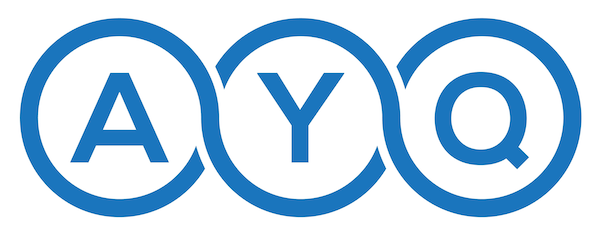Managing a combination of work and study can be challenging, but finding a healthy balance is crucial to avoid burnout and achieve success in both areas of your life. Whether you’re juggling a full-time job and part-time classes or working part-time while pursuing a degree, it’s essential to have effective strategies in place to ensure you don’t become overwhelmed.
To help you navigate this balancing act and manage your education and career, we’ve put together some valuable tips and insights. By implementing these strategies, you can stay on track, minimize stress, and maintain your well-being along the way.
Plan Ahead to Stay on Track
When managing the delicate balance between work and study, planning ahead is essential. By employing effective planning strategies, you can prioritize tasks, stay organized, and ensure you meet deadlines without feeling overwhelmed. Planning ahead empowers you to make the most of your time, cultivate a sense of accomplishment, and maintain a healthy work-study balance.
Task Prioritization for Optimal Efficiency
Task prioritization is a key component of staying on track and avoiding last-minute cramming. Begin by identifying the most critical tasks that require immediate attention. By using to-do lists and categorizing your tasks based on urgency and importance, you can allocate your time and energy effectively. This approach allows you to focus on completing essential tasks efficiently and prevents unnecessary stress from jeopardizing your work and study commitments.
Keep Yourself Organized with Calendars and Journals
Staying organized is paramount when juggling multiple responsibilities. Utilize calendars or digital planners to schedule your tasks and allocate specific time slots for both work and study. This visual representation helps you visualize your commitments and ensures you allocate sufficient time to each. Additionally, keeping a journal to track your progress, jot down important deadlines, and note any necessary adjustments can significantly contribute to your overall organization and productivity.
In addition, consider taking advantage of productivity tools or apps that can streamline your planning process and keep all your tasks and deadlines in one place. By harnessing technology to your advantage, you can enhance your efficiency and reduce the likelihood of overlooking important deadlines.
Visualizing Progress and Celebrating Achievements
Effective planning extends beyond task management; it also involves creating a sense of progress and personal satisfaction. As you complete tasks, take a moment to acknowledge your achievements and celebrate your progress. This simple practice reinforces your motivation, boosts morale, and encourages you to stay on track. Whether it’s checking off completed tasks on your to-do list or using visual trackers to monitor your progress, find a method that works for you and embrace the sense of fulfillment it brings.
The Benefits of Planning Ahead
Proper planning accelerates your progress, reduces stress, and allows you to achieve your work and study goals more effectively. By meticulously prioritizing tasks, utilizing calendars and journals, and visualizing progress, you can navigate the intricate world of work and study with greater ease and efficiency. Embrace the power of planning ahead, and unlock your true potential in both your professional and academic endeavors.
Be Aware of Your Limits and Prioritize
When it comes to balancing work and study, it’s crucial to recognize your limits and prioritize accordingly. Your education should be your main focus, with work serving as a means of financial support and gaining valuable experience. By setting limits and defining boundaries, you can avoid overwhelming yourself and minimize stress.
One important aspect of setting limits is effectively communicating with your employer about your availability and concerns. Let them know your academic commitments and discuss any potential conflicts or challenges that may arise. Clear communication will help them understand your situation and enable them to support you in managing your workload.
If you find that a part-time job is becoming too demanding and affecting your ability to perform well academically, consider exploring alternative options. Look for part-time job opportunities that offer more flexibility, such as weekend jobs or online gigs. This way, you can still earn money while maintaining a manageable workload.
Additionally, it’s essential to prioritize self-care and avoid burnout. Remember to take breaks, engage in activities you enjoy, and prioritize your physical and mental health. Setting aside time for relaxation and stress management techniques will help you maintain balance and perform at your best.
Now, let’s take a look at a table that outlines some part-time job options you can consider:
| Part-Time Job Options |
|---|
| 1. Retail associate |
| 2. Tutor |
| 3. Freelancer (e.g., graphic design, writing) |
| 4. Virtual assistant |
| 5. Delivery driver |
Remember, finding the right balance between work and study requires careful planning, self-awareness, and effective communication. By setting limits, prioritizing your education, and exploring suitable part-time job options, you can navigate this juggling act successfully.

Use Your Time Wisely for Productivity
To effectively balance work and study, it is crucial to manage your time wisely. By implementing time management strategies and avoiding distractions, you can optimize your productivity and achieve your goals more efficiently. Here are some tips to help you make the most of your time:
1. Break Your Study Sessions
Breaking your study sessions into shorter periods with breaks in between can enhance your focus and prevent procrastination. Research has shown that studying in shorter, focused bursts can improve information retention and overall productivity. Consider using the Pomodoro Technique, where you work for 25 minutes and then take a 5-minute break. Repeat this cycle three or four times before taking a longer break.
2. Minimize Distractions
Distractions can hinder your study progress and waste valuable time. Turn off notifications on your phone and computer, and consider using website blockers to limit access to social media and other distracting websites. Create a conducive study environment by finding a quiet space where you can concentrate without interruptions. Additionally, using noise-cancelling headphones or playing background music can help you stay focused.
3. Prioritize Tasks
When managing work and study, it’s important to prioritize tasks based on deadlines and importance. Create a to-do list or use productivity apps to help you stay organized and track your progress. Consider using the Eisenhower Matrix, which categorizes your tasks into four quadrants based on their urgency and importance:
| Urgent | Not Urgent |
|---|---|
| Important | Delegate or Eliminate |
| Not Important |
By identifying and focusing on tasks that are both urgent and important, you can make progress on your work and study commitments effectively.
Managing your time efficiently allows you to complete your university work faster and potentially have more time for relaxation or additional work shifts. By incorporating these time management strategies and eliminating distractions, you can maintain a healthy work-study balance and achieve your goals effectively.
Communicate with Your Employer for Support
Maintaining open communication with your employer is vital when balancing work and study simultaneously. By fostering a relationship built on trust and understanding, you can create a supportive environment that allows for effective time management and reduces stress. When you openly communicate with your employer about your situation, you enable them to better understand your needs and potentially offer flexibility and support.
Be honest and transparent about your commitments and availability. Let them know about your class schedule, upcoming deadlines, or any other factors that may impact your work. By providing this information, you allow your employer to plan accordingly and make necessary adjustments to accommodate your study requirements.
If you are experiencing difficulties in juggling work and study, have an open discussion with your employer about potential solutions. This can include adjusting your work schedule, reducing your hours, or exploring alternative work arrangements such as flexible work hours or remote work options. Remember, your employer wants you to succeed, and they are more likely to be supportive if you approach the situation with honesty and a willingness to find a mutually beneficial solution.
Here is an example of how you can communicate with your employer:
| Sample Email to Employer |
|---|
| Subject: Request for Work Schedule Adjustment |
| Dear [Employer’s Name], |
| I hope this email finds you well. I wanted to discuss a potential adjustment to my work schedule to better accommodate my current study commitments at [University Name]. I value my role at [Company Name] and want to ensure that both my work and studies receive the attention they deserve. |
| As you may know, I am pursuing [Degree/Diploma] at [University Name], and my class schedules for the upcoming semester have recently been released. After reviewing my course requirements, I have identified a few conflicts between my current work schedule and my classes that could potentially impact my ability to perform at my best in both areas. |
| I would like to propose the following solutions: |
| 1. Adjusting my work schedule by [proposed adjustment in hours]. This will allow me to attend all my classes without any conflicts and maintain my productivity in my role at [Company Name]. |
| 2. Exploring the possibility of remote work on certain days, if appropriate for my role. This would provide me with increased flexibility while still fulfilling my responsibilities. |
| I understand that these adjustments may require coordination and planning, and I am more than willing to work together to find a solution that meets the needs of both [Company Name] and my academic commitments. |
| I would greatly appreciate the opportunity to discuss this further and explore ways in which we can successfully navigate this situation without compromising the quality of my work or my studies. Thank you for your understanding and support. |
| Best regards, [Your Name] |
Note: Adapt the email template to suit your specific circumstances and maintain a professional tone throughout the communication.
Prioritize Rest and Health for Balance
When balancing work and study, it’s easy to neglect your own well-being. However, taking care of your physical and mental health is crucial for maintaining a healthy work-study balance. Incorporating self-care practices into your daily routine will help you avoid burnout and perform at your best.
Start by ensuring that you get enough rest and sleep. Adequate sleep is essential for cognitive function and overall well-being. Create a bedtime routine that promotes relaxation and stick to a consistent sleep schedule. By prioritizing rest, you will wake up refreshed and ready to tackle your work and study responsibilities with renewed energy.
In addition to sleep, a healthy diet is also key to maintaining balance. Fuel your body with nutritious meals that include a variety of fruits, vegetables, whole grains, and lean proteins. Avoid relying on fast food or unhealthy snacks, as they can leave you feeling sluggish and affect your ability to concentrate. Eating well will provide the energy you need to succeed in both work and study.
Lastly, don’t forget about stress management. Find techniques that work best for you, whether it’s practicing mindfulness, engaging in physical activity, or pursuing creative hobbies. Regularly incorporate these stress-relieving activities into your routine to help you stay focused and calm. By prioritizing self-care and stress management, you’ll be better equipped to navigate the demands of both work and study without sacrificing your well-being.

